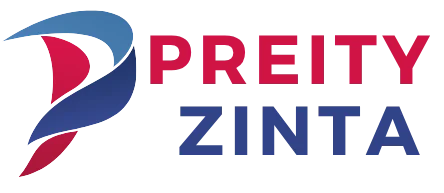Table of Contents
ToggleIn today’s globalized world, mastering language skills is more important than ever. Language skills workshops offer an engaging and interactive way for individuals to enhance their communication abilities, whether for personal growth or professional advancement. These workshops cater to diverse audiences, from students eager to improve their fluency to professionals seeking to sharpen their business communication.
Participants in language skills workshops benefit from tailored instruction, real-world practice, and collaborative learning environments. By focusing on speaking, listening, reading, and writing, these workshops empower attendees to build confidence and competence in their language abilities. As the demand for effective communication continues to rise, investing time in a language skills workshop can open doors to new opportunities and enrich personal connections.
Overview of Language Skills Workshops
Language skills workshops target essential communication abilities. They cater to diverse individuals, including students, professionals, and adults seeking to improve their language proficiency. Workshop formats typically encompass various interactive methods, such as group activities, role-playing, and structured discussions.
Workshops focus on four primary skills: speaking, listening, reading, and writing.
- Speaking: Participants practice pronunciation, fluency, and articulation through conversations and presentations.
- Listening: Activities involve listening to dialogues and lectures, enhancing comprehension and response capabilities.
- Reading: Participants engage with texts varying in complexity, improving vocabulary and analytical skills.
- Writing: Workshops cover different writing styles, stressing grammar, organization, and clarity.
Tailored instruction forms a key component. Instructors assess participants’ current abilities and customize lessons to address unique needs. Feedback plays a crucial role in this process, offering insights for continuous improvement.
Networking opportunities arise during these workshops. Interacting with peers fosters collaborative learning and encourages the exchange of ideas. These environments create supportive spaces for individuals to share their experiences, enhancing overall learning.
Language skills workshops yield numerous benefits. Participants often see increased confidence, improved communication skills, and expanded career opportunities. Engaging in these workshops lays a strong foundation for effective language use in both personal and professional contexts.
Benefits of Attending Language Skills Workshops

Attending language skills workshops offers substantial benefits, particularly in communication and cultural understanding. These workshops serve as valuable resources for individuals aiming to refine their language capabilities.
Improved Communication Skills
Improved communication skills emerge from targeted practice within language skills workshops. Participants focus on several key areas:
- Speaking: Participants practice pronunciation, intonation, and conversational fluency through interactive exercises.
- Listening: Workshops enhance listening comprehension via dialogues and authentic auditory materials, ensuring participants grasp nuances.
- Reading: Reading activities strengthen vocabulary and critical analysis skills, encouraging diverse literary exposure.
- Writing: Writing sessions center on grammar, structure, and clarity, equipping participants to express ideas coherently.
The structured environment fosters confident communication, empowering individuals to articulate thoughts effectively in various contexts.
Enhanced Cultural Awareness
Enhanced cultural awareness significantly enriches the workshop experience. Workshops often integrate cultural elements, providing insights into language nuances tied to different societies:
- Cultural Context: Participants gain understanding of cultural references, idiomatic expressions, and non-verbal cues unique to specific languages.
- Cross-Cultural Interaction: Engaging with diverse peers encourages discussions about cultural norms and practices, broadening perspectives.
- Global Competence: Developing cultural awareness promotes sensitivity and adaptability in global interactions, essential in today’s interconnected world.
Such insights prepare participants to navigate multicultural workplaces and social settings confidently, fostering collaboration across diverse environments.
Types of Language Skills Workshops
Language skills workshops come in various formats, catering to different proficiency levels and focused topics. These workshops enhance participants’ abilities through targeted instruction and practice.
Beginner to Advanced Levels
Workshops serve individuals at all proficiency levels, offering tailored approaches for beginners, intermediates, and advanced learners.
- Beginners: Foundations in vocabulary, basic grammar, and pronunciation are emphasized. Activities include simple dialogues and role-playing scenarios.
- Intermediate: This level focuses on expanding vocabulary and complex sentence structures. Participants engage in group discussions and real-world applications to develop fluency.
- Advanced: Theses workshops challenge participants with nuanced language usage, idiomatic expressions, and professional communication styles. Activities include debates and presentations to refine rhetorical skills.
Focused Topics (e.g., Business, Travel)
Workshops also concentrate on specific themes, addressing unique needs of participants aiming for targeted communication skills.
- Business Language: This workshop covers industry-specific vocabulary and professional etiquette. Scenario-based exercises focus on presentations, negotiations, and correspondences.
- Travel Language: Participants learn essential phrases, cultural nuances, and situational dialogues for traveling. Role-playing scenarios include hotel check-ins, restaurant interactions, and navigating public transport.
- Academic Language: This workshop prepares participants for academic writing and presentations. It covers citation styles, scholarly vocabulary, and effective note-taking techniques.
Each type of workshop provides practical skills relevant to participants’ goals, ensuring that learning experiences are valuable and applicable.
How to Choose the Right Workshop
Choosing the right language skills workshop requires careful consideration of personal goals and workshop offerings. Evaluating both aspects ensures participants select a workshop that meets their needs.
Assessing Your Goals
Assessing personal goals is essential before selecting a workshop. Identify specific language skills that need improvement, such as speaking, listening, reading, or writing. Determine whether the focus is on academic, professional, or social contexts. Consider immediate objectives, like passing an exam or preparing for a business presentation. Define long-term goals, such as achieving fluency or enhancing career prospects. Clarity in these goals can guide the selection of a workshop that aligns closely with expected outcomes.
Evaluating Workshop Quality
Evaluating workshop quality involves several key factors. Research instructor credentials and experience, ensuring they possess expertise in teaching language skills. Review the curriculum structure to confirm it covers critical areas relevant to personal goals. Look for workshops that incorporate interactive methods, such as group activities and role-play, which enhance learning. Check participant reviews and testimonials, as they provide insights into the workshop’s effectiveness and participant satisfaction. Finally, consider the workshop format, whether it’s in-person or online, as this can impact engagement and accessibility.
Language skills workshops are invaluable for anyone looking to enhance their communication abilities. By participating in these interactive sessions, individuals not only gain practical skills but also build confidence in navigating diverse environments. The tailored instruction and engaging activities foster a supportive atmosphere that encourages growth.
As the world becomes increasingly interconnected, the ability to communicate effectively across cultures is more important than ever. These workshops prepare participants to thrive in personal and professional settings. By choosing the right workshop that aligns with their goals, individuals can unlock new opportunities and elevate their language proficiency to new heights. Investing in language skills workshops is a step towards a brighter and more connected future.







